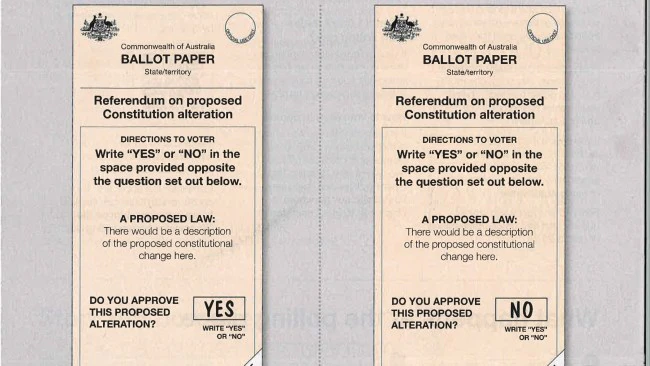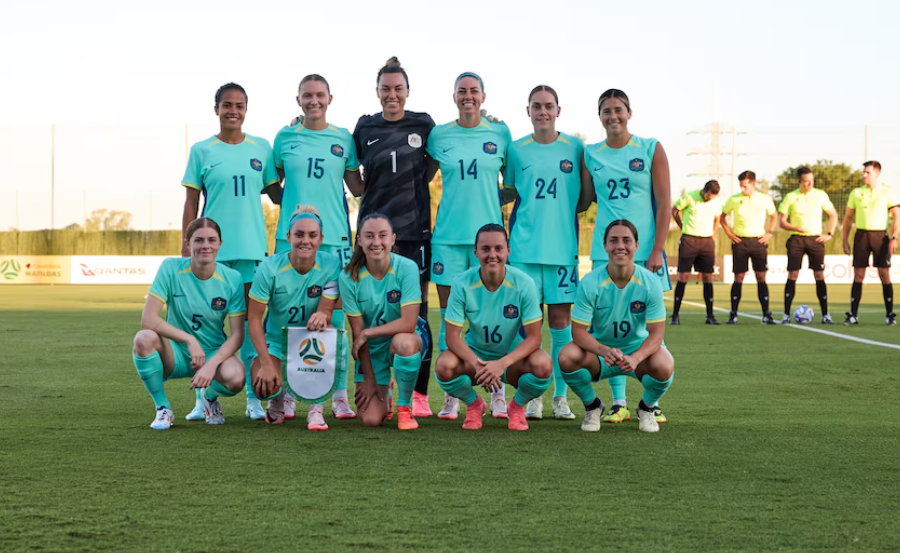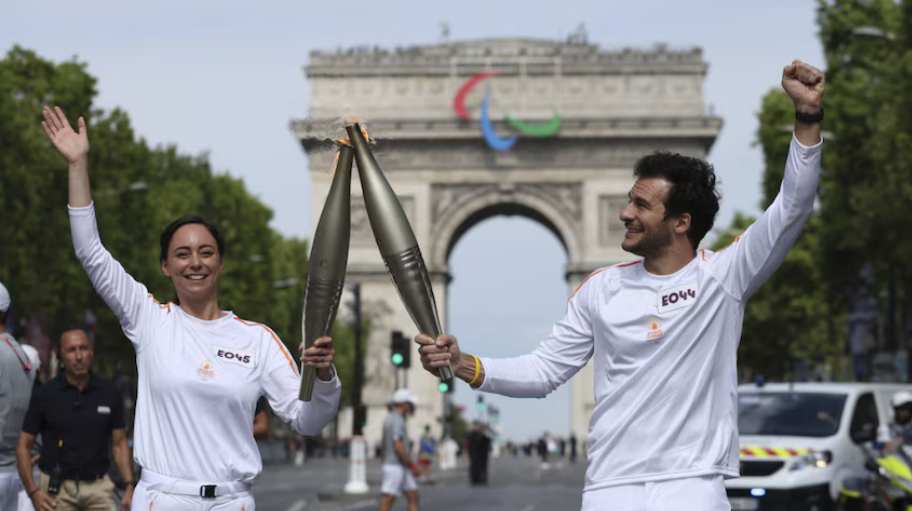Debate rages on over Voice to Parliament voting rule as Jason Clare and Sussan Ley go head-to-head on Sunrise

The Albanese government has hit back at claims the Voice to Parliament voting rules are lopsided as the opposition pushed for a “modern era” approach for the referendum in a fiery debate on live television.
The upcoming referendum will operate differently to normal elections, with voters asked to write yes or no on the ballot paper following the question on the constitutional amendment.
However, Australian Electoral Commission Commissioner Tom Rogers revealed on Sky News Australia on Wednesday voters would be allowed to put a tick to indicate yes but would not be permitted to write a cross to signify no.
Despite the AEC later reiterating that “nothing has changed” with the voting system, the opposition is adamant the rules would give a “very strong advantage” to the Yes campaign.
Speaking on Channel 7’s Sunrise on Friday, Education Minister Jason Clare and Deputy Opposition Leader Sussan Ley went head-to-head over the Voice voting rules.
“These are the same rules we had for the last referendum, back in 1999 and it didn’t cause any confusion then, ” Mr Clare said.
“When John Howard held a referendum into the republic, same rules worked fine, I think less than 1 per cent of votes were informal, I think that pricks the bubble of this argument that this is going to cause some sort of confusion.”
But Ms Ley argued: “If a tick means Yes then a cross should mean No.”
“It’s really that simple, and this excuse from Jason that we can go back to 1999 and use those rules…I don’t think mobile phones even worked properly then…this is the modern era. We have a lot more Australians who don’t speak English,” she added.
Mr Clare then questioned why the opposition didn’t move an amendment to change legislation earlier “if they were so worried about this”.
“It’s just the weakest, laziest argument I’ve ever heard,” he argued.
Ms Ley rejected claims the opposition’s argument was invalid, saying: “This is about what makes sense to the Australian people today.”
But when Sunrise host Natalie Barr herself asked why she hadn’t brought the issue up earlier, Ms Ley responded with: “Well we’re saying it now…it’s actually an issue for the AEC, which is why I think Jason should be talking to them and be absolutely firm on having a fair referendum.”
Mr Clare fired back, saying if Peter Dutton and Sussan Ley were “serious about this, they would have attempted to change the law weeks ago.”
On Thursday Mr Dutton said he will be writing to the AEC over the voting rules which he argued were “completely outrageous”.
Speaking to 2GB’s Ray Hadley, Mr Dutton said there was no doubt the current voting would advantage the Yes campaign.
“I’m going to write to the AEC commissioner today with Michaelia Cash, our shadow attorney-general, because I think it is completely outrageous to be honest,” he said on Thursday morning.
“If a tick counts for yes then a cross should count for no…otherwise it gives a very strong advantage to the yes case.
“And if legislation’s required to clarify this then we’ve got plenty of time, parliament’s back the week after next and we would support a sensible bill to clarify.
“It just stinks to be honest and I think the AEC Commissioner here really needs to step up and exert his independence and give a sensible interpretation, one that doesn’t favour the yes or the no case.”
The AEC shut down claims the voting system wasn’t clear, saying the formal instructions are to “clearly write yes or no, in full, in English.”
“We expect the vast, vast majority of voters to follow those instructions,” an AEC spokesperson told SkyNews.com.au on Thursday afternoon.
“The rate of informal votes cast at the previous referendum in 1999 was just 0.86 per cent, and of those informal votes many would not have been related to ticks and crosses in any way.”
The AEC said it does not having any discretion to ignore savings provisions – which is the ability to count a vote when the instructions have not been followed but the intention is clear – a rule it claims exists for federal elections as well
“The AEC’s accepted legal advice regarding the application of savings provisions to ‘ticks and ’crosses’ since 1988 (over 30 years and multiple referendums) remains the same,” the spokesperson continued.
“The issue with a cross is that on many forms people in Australia use in daily life, and in some other languages, it represents a ‘check mark’ indicating yes – it therefore leaves it open to interpretation or challenge by a scrutineer.
“A ‘tick’ would also be open to interpretation and may not count depending on just how clear that mark is on the ballot paper.
“The same issues exist for just the letter ‘y’ or ‘n’ – if the handwriting makes it unclear it could risk an informal vote.
“This is why the commissioner, and the AEC will be very clear and regular with our communication that people need to write the full word ‘yes’ or ‘no’ in English, in full.”
The Prime Minister will finally reveal the date of the referendum next week in South Australia which is considered to be crucial if the Yes campaign was to claw back support and be successful.
It is widely expected Australians will take to polling booths on October 14 to vote on the constitutional amendment, however the PM hasn’t added to this speculation.
SOURCE: SKYNEWS





